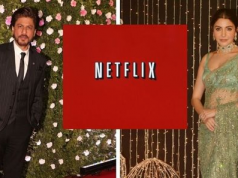Hyderabad / India – June 23, 2025
In a bold statement stirring substantial debate across India’s film fraternity, Telugu superstar and Andhra Pradesh Deputy Chief Minister Pawan Kalyan has strongly critiqued Bollywood for forsaking “Bharatiyata”—the essence of Indian culture—in favor of profit-driven content. During an interview with Organizer Weekly, Kalyan contrasted Bollywood’s perceived commercialization with South Indian cinema’s steadfast dedication to cultural authenticity.
The Controversial Comments
Kalyan reflected on current trends in mainstream Hindi cinema, asserting:
“Bollywood has turned cultural characters into buffoons … only making films for money, ignoring values.”
He lamented that big-budget films have drifted toward superficial spectacle, neglecting the depth of real Indian traditions, spirituality, and emotional realism—a void he believes regional industries are filling.
In Praise of South Cinema
The megastar lauded regional industries—particularly from Telugu, Tamil, Malayalam, and Kannada—for preserving cultural storytelling, stating:
“South cinema shows richer portrayals of Indian heritage, rooted in traditions and native ethos.”
He emphasized that regional filmmakers continue to weave local languages, folklore, and histories into their narratives, fostering stronger cultural identity and audience connection.
Why This Matters
Kalyan’s remarks strike at a more significant cultural conversation across India’s entertainment landscape:
- Cultural Identity vs. Commercial Gain: Bollywood has long been criticized for prioritizing vanity blockbusters over socially resonant films.
- Regional Rise: With movies like RRR, KGF, Drishyam 2, and Jawan, South Indian and regional stories are gaining pan-Indian and global recognition.
- Language & Cultural Roots: Regional cinema embeds native idioms, customs, and heritage—an element Kalyan believes Bollywood is losing.
Industry Reaction and the Community Pulse
Reactions are varied:
- Supporters of Pawan Kalyan appreciate his advocacy for cultural preservation and fear of Bollywood’s homogenization.
- Critics of His Viewpoint argue regional films are also commercial and that Bollywood still makes high-quality content, citing films like Article 370, Tumbbad, and Gully Boy.
- Neutral Analysts consider this a healthy push for Bollywood to balance market pressures with meaningful content.
The Bigger Trend
India’s film industry is experiencing a transformation:
- Box Office Shake-up
South films regularly outperform Bollywood at the box office and OTT charts across the country, challenging stereotypes. - OTT’s Role in Diversifying Content
Platforms like Netflix, Prime Video, and Disney+Hotstar showcase regional films, triggering a shift beyond Bollywood’s dominance. - Government & Policy Influence
Pawan Kalyan’s dual roles as actor-politician amplify the potential for cultural preservation to influence film incentives, regional funding, and content guidelines.
What Happens Next?
| Focal Area | Possible Outcomes |
|---|---|
| Bollywood Response | Major stakeholders could issue public rebuttals or release culturally-rich banner films. |
| Regional Confidence | Producers and directors in South India may double down on local storytelling. |
| Policy Shifts | Tamil Nadu, Telangana, and Andhra governments could roll out grants or subsidies to culturally rooted films. |
| Public Discourse | Expect deeper debate across panels, streaming platforms, and content creator forums on values vs. commerce. |
Final Take
Pawan Kalyan’s comments represent more than theatrical opinions—they reveal fault lines in India’s film ecosystem. As Hindi cinema pursues global profitability, can Bollywood retain the intangible richness of Bharatiyata? Meanwhile, South Indian filmmakers continue to prove that culturally rich content can triumph on mainstream platforms.
If this sparks discussions about future content direction or impacts Bollywood’s strategy, I can track industry responses, analyst essays, or feature interviews with filmmakers on cultural representation.








